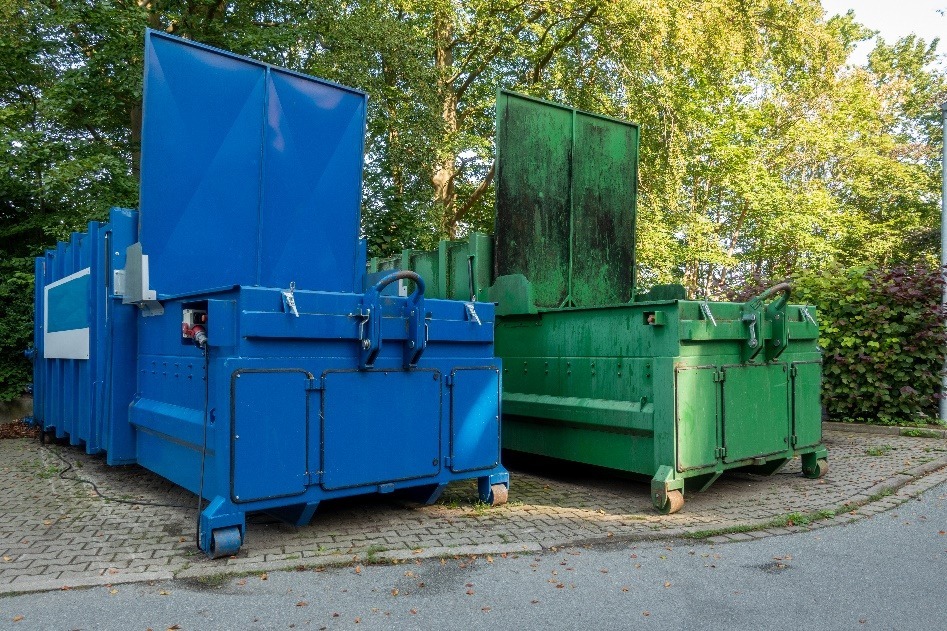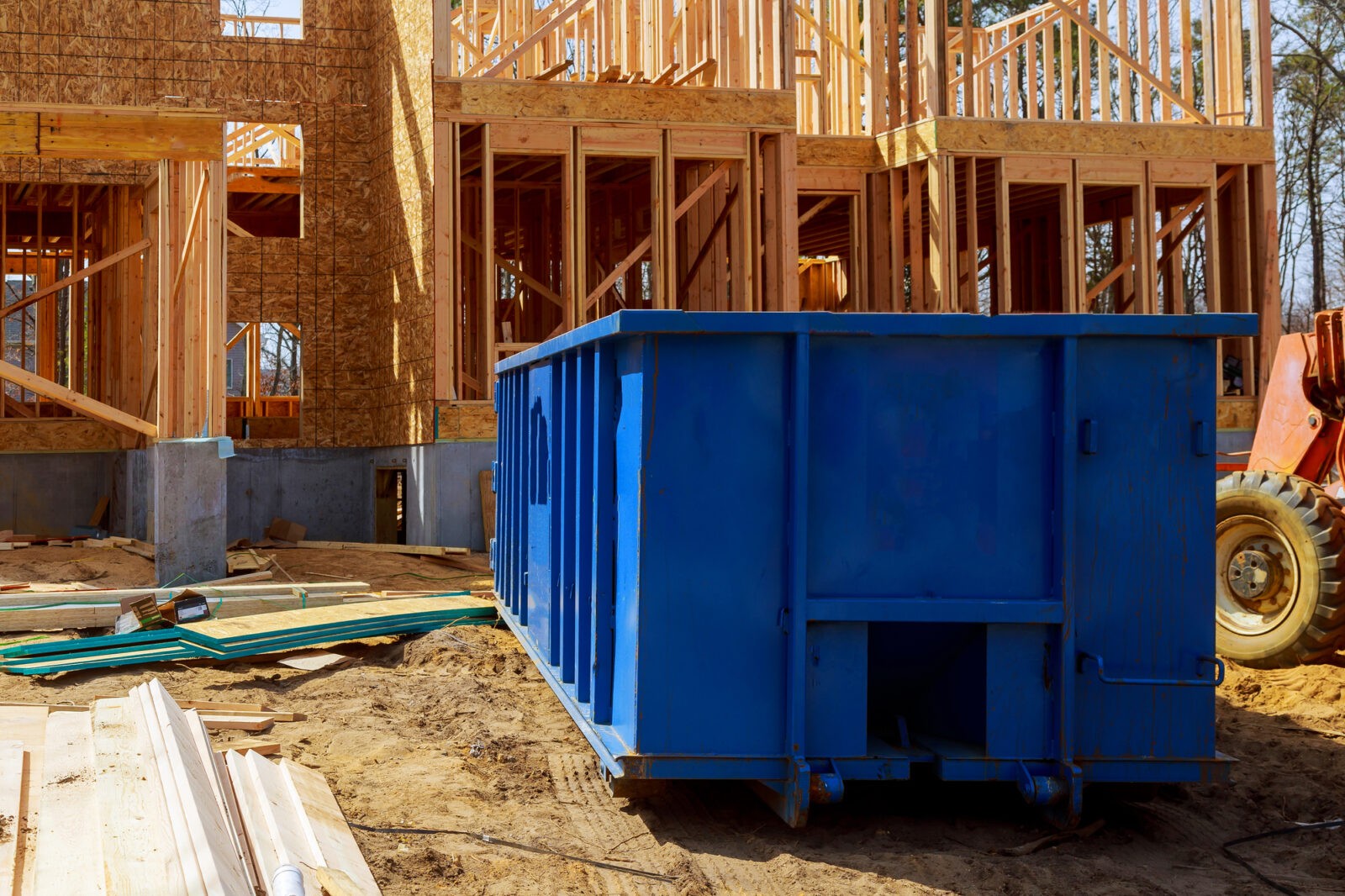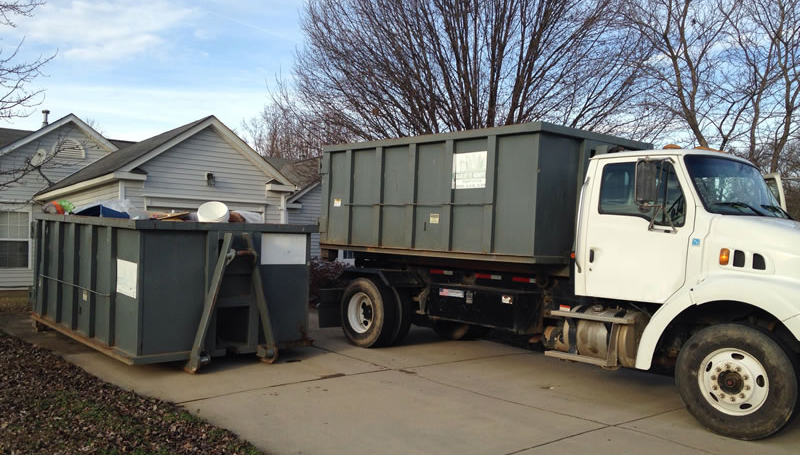If you’re planning a home renovation, large cleanup, or construction project, renting a dumpster is often necessary.
However, before ordering one, it’s important to understand the requirements involved.
In this guide, we’ll explain the different types of dumpsters, the regulations to consider, and how to choose the right dumpster for your project.
What are the requirements for a dumpster?
Dumpster requirements vary by location but usually include permit acquisition, proper waste sorting, and compliance with local waste disposal regulations. Always check with your provider.
Key Takeaways
- Dumpster rental requirements vary depending on the size of the dumpster and the type of waste.
- You must ensure that the dumpster is placed in a safe and accessible location.
- Local regulations may require a permit for placing a dumpster on a public street.
Types of Dumpsters

Before diving into the specific requirements for renting a dumpster, it’s important to understand the different types of dumpsters available.
If you’re planning a home renovation, a large cleanup, or a construction project, renting a dumpster is often a necessary step.
However, before you order one, it’s important to understand the various requirements involved in renting and using a dumpster.
We will explain the different types of dumpsters, the regulations you need to consider, and how to choose the right dumpster for your project.
The size and type of dumpster you choose will depend on the scope of your project, as well as the kind of waste you need to dispose of.
Roll-Off Dumpsters
Roll-off dumpsters are commonly used for large projects such as home renovations, construction work, or major cleanouts.
They are large, rectangular containers with open tops, and they can be easily rolled onto your property or job site using a truck with a hydraulic system.
Best For: Large cleanouts, construction debris, or heavy waste.
Size Options: Typically range from 10 to 40 cubic yards.
Front Load Dumpsters
Front-load dumpsters are smaller containers typically used for regular waste disposal, often in commercial settings or for smaller residential projects.
These dumpsters are emptied using a truck with a front-loading mechanism.
Best For: Small businesses, apartments, or ongoing waste removal.
Size Options: Usually range from 2 to 8 cubic yards.
Compactor Dumpsters
Compactor dumpsters are designed to compress waste using a compaction mechanism. These are ideal for heavy waste or large volumes of waste that need to be compacted to save space.
Best For: Businesses with high waste output, especially in urban areas.
Size Options: Varies based on the level of compaction.
What to Consider When Renting a Dumpster
There are several factors to take into account when renting a dumpster.
These considerations will help ensure you select the right size, avoid additional costs, and comply with local regulations.
Dumpster Size

Choosing the right size dumpster is crucial. If you rent a dumpster that’s too small, you may need to rent another one, causing unnecessary delays and additional costs.
On the other hand, renting a dumpster that’s too large may mean you’re paying for unused space.
Small Projects: For smaller cleanouts, small remodels, or yard waste, a 10 or 15 cubic yard dumpster should suffice.
Medium Projects: Larger renovations, roofing jobs, or major cleanouts may require a 20 or 30-cubic-yard dumpster.
Large Projects: If you’re working on a construction site or large-scale cleanout, a 40 cubic yard dumpster is usually necessary.
Weight Limits
Each dumpster has a weight limit, which is determined by the rental company. Exceeding the weight limit can result in additional charges.
Typically, dumpsters are priced based on both the size and weight of the waste they carry.
Considerations: Be sure to ask your rental company about the weight limits and keep track of how heavy the contents of the dumpster will be.
If you’re disposing of heavy materials like concrete or roofing shingles, they can quickly push you over the weight limit.
Waste Type
Different dumpsters may be suitable for different types of waste. Many rental companies have restrictions on what can and can’t be disposed of in their dumpsters.
Acceptable Waste: Most dumpsters are used for general household waste, construction debris, yard waste, and other non-hazardous materials.
Prohibited Waste: Hazardous materials, chemicals, paints, oils, asbestos, and electronic waste typically cannot be placed in standard dumpsters.
If you need to dispose of these materials, you may need a special container or disposal service.
Local Regulations and Permits

In some cases, especially if the dumpster needs to be placed on public property, you may need to acquire a permit.
Different areas have different regulations, so it’s essential to check with local authorities before setting up your dumpster.
Street Placement Permits
If you plan to place your dumpster on a public street, sidewalk, or another shared area, you may be required to obtain a permit from the city or county.
This is especially true for high-traffic areas or locations where the dumpster could block lanes of traffic or pedestrian walkways.
How to Obtain a Permit: To get a permit, you will need to contact your local municipality’s parking or public works department.
The process typically involves filling out an application and paying a fee. Be sure to request the permit well in advance, as approval may take time.
Size and Weight Restrictions
Local regulations may also impose limits on the size and weight of the dumpster. If you’re in a residential area with limited space, the size of the dumpster you can place may be restricted.
Be sure to check the rules for your location to ensure that you comply.
Environmental Regulations
Some areas have strict environmental regulations that govern waste disposal.
If you’re disposing of large quantities of construction debris or other specific materials, you may need to follow special procedures.
Check with the local waste disposal authority to see if any additional guidelines apply.
Dumpster Placement Tips
Choosing the right location for your dumpster can help ensure that it is easy to load and doesn’t cause unnecessary obstruction.
Below are a few tips to consider when selecting a placement spot:
Ensure Accessibility
Make sure the dumpster is placed in an accessible location, allowing for easy entry and exit.
If you’re working with a construction team or have heavy debris, a location with good vehicle access is essential.
Avoid Blocking Driveways: Make sure your dumpster doesn’t block your or your neighbour’s driveway. If it’s on a shared street, be mindful of the flow of traffic.
Consider the Slope
If your driveway or yard has a steep incline, consider placing the dumpster on a flat, stable surface.
Uneven ground can make it difficult to load the dumpster properly and may even cause the dumpster to shift or tip over.
Check for Overhead Obstacles
Ensure there are no low-hanging branches, wires, or other obstructions overhead where the dumpster will be placed.
These can prevent the truck from delivering or removing the dumpster, leading to delays.
How to Choose the Right Dumpster for Your Project
Now that you understand the different factors to consider when renting a dumpster, here are some tips to help you choose the right one for your project:
Estimate the Size of the Job: For small cleanups or minor renovations, a 10 to 15 cubic yard dumpster is usually sufficient.
For larger projects, such as construction or a large-scale cleanout, a 20 to 40 cubic yard dumpster may be needed.
Understand the Weight of Your Waste: If you’re disposing of heavy materials like concrete or bricks, ensure you rent a dumpster that can handle the weight.
Talk to the rental company to avoid overloading the dumpster.
Consider Your Location: If you need to place the dumpster on a public street, check with your local municipality for any parking or placement restrictions.
If the dumpster is going on your property, ensure there’s enough space for it.
Frequently Asked Questions
1. Can I place a dumpster on the street?
Yes, but you may need a permit from your local municipality. Check with your city or county to find out about regulations and how to apply for a permit.
2. Can I dispose of hazardous materials in a dumpster?
No, hazardous materials like chemicals, oils, and paints cannot be disposed of in standard dumpsters. You will need to find a special disposal service for these items.
3. How much does it cost to rent a dumpster?
The cost of renting a dumpster depends on the size, location, and duration of use. On average, prices range from $200 to $500, but larger dumpsters or longer rental periods may cost more.
Conclusion
Renting a dumpster is a simple and effective solution for managing waste during home renovations, construction projects, or cleanups.
By understanding the different types of dumpsters, local regulations, and the factors that influence cost, you can make an informed decision about the right dumpster for your project.
Proper placement, adherence to regulations, and thoughtful planning can help you maximise the efficiency of the dumpster rental process and keep your project on track.